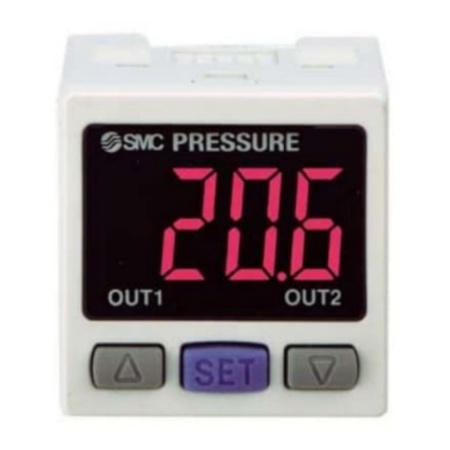Pneumatic Sensors & Switches
Whether you're after air switches, pneumatic actuators and cylinder kits, vacuum switches, pressure sensors/controllers, or various leads, mounts, and cables, our comprehensive selection of pneumatic sensors and switches has you covered.
We proudly stock industry-leading products from SMC.
Understanding the Different Types of Pneumatic Switches
Air Switches
- Air switches generate a burst of air that travels through tubing to a control unit when activated.
- This air signal is interpreted by the control system to initiate or halt a connected process.
- These switches are ideal for safely activating electrical devices in moisture-prone or hazardous environments, such as near water sources.
Pneumatic Cylinder Switches
- These switches come in various forms—such as reed switches, solid-state versions, actuators, and pneumatic relays—some equipped with LED indicators.
- They convert compressed air into mechanical motion to power equipment or devices.
- Each type has unique specs, including voltage ratings and maximum operating temperatures, so it’s important to match the switch type with your system’s requirements.
Pressure and Vacuum Switches
- These components help manage pressure imbalances by redirecting air where needed within a pneumatic circuit.
- Pressure switches respond to fluid pressure at the inlet, while vacuum switches maintain vacuum flow between zones for consistent performance.
- They are designed to operate under various pressure types such as negative, compound, relative, or electro-mechanical—selecting the right one depends on your system’s specs.
Pressure Sensors and Controllers
- These devices work together to monitor, adjust, and maintain pressure levels in a system.
- Readings are shown on digital displays, allowing users to fine-tune system performance easily.
- Controllers often manage multiple sensors from a central point, enhancing control and efficiency.
- The ideal controller depends on how many sensors need to be managed, power and voltage requirements, IP rating, and the number of switch outputs needed.





